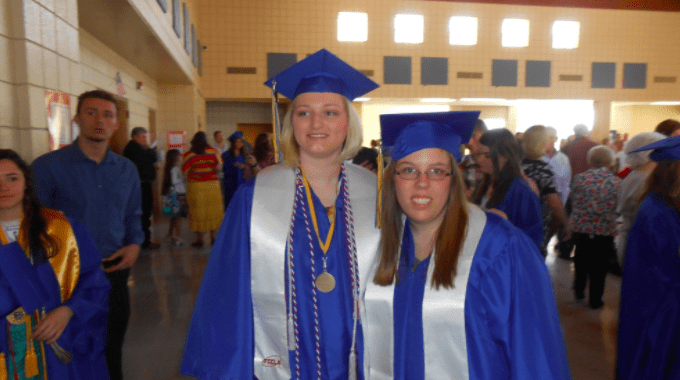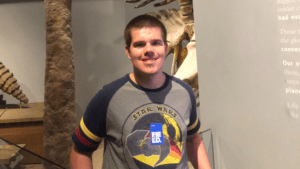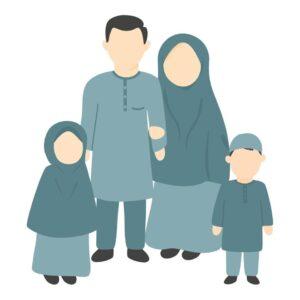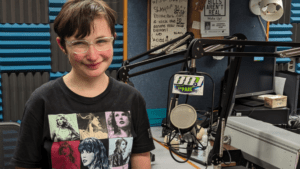This guest post is by Emily Best, a woman on the autism spectrum. Emily attends Ozarka College. Emily is applying for our Summer 2017 Making a Difference Autism Scholarship via the nonprofit KFM Making a Difference. You can read more about the organization and how to apply for our scholarship here.
The biggest obstacle holding back people with Asperger’s Syndrome is the fact that Asperger’s is an invisible disability. I, Emily Best, have High-Functioning Autism Spectrum Disorder (ASD), which is commonly known as Asperger’s Syndrome. It is easy for others to understand that people who have severe ASD manifestations and function at low levels are disabled. However, too many people do not understand that those who have Asperger’s are also disabled. Since people who have Asperger’s are higher functioning, they often can find ways to overcome their disability related challenges so that at first glance they may not appear disabled. Therefore, sadly, people who have Asperger’s often do not the get the support, acceptance, understanding and respect that other disabled people receive. This is tragic because often people who have Asperger’s desperately need disability related support.
People who have Asperger’s frequently report feelings of overall exhaustion. This is because, again, Asperger’s is a disability but unlike many other disabilities people with Asperger’s can function at a high enough level that they can also hide the manifestations of their disability so that they appear “normal”. However, people with Asperger’s are not meant to function “normally” so it is physically, mentally and emotionally exhausting to always look for ways to overcome disability related challenges. Then, to add to the exhaustion, often people who have Asperger’s are told they “are not disabled” or they are “faking being upset” or are “choosing to act that way.”
Often until a person observes how a close friend or relative who has Asperger’s functions, they cannot truly appreciate or understand what it takes a person who has Asperger’s to have success. My ultimate educational goal is to obtain a BSN. In May of 2013, I graduated from high school and in August of 2013, I started college. I first took all the general education courses that are required to obtain a BSN. Then in May of 2017, I graduated from Ozarka College’s LPN program. To become an RN, I have applied to the Arkansas Rural Nursing Education Consortium (ARNEC) program that begins in January of 2018, and ends in November of 2018. Acceptance letters into the ARNEC program have not been mailed out yet. After I become an RN, I will obtain my BSN online within a year because, as previously stated, I have already taken all the required general education courses. All throughout college I have been a member of Phi Theta Kappa Academic Honor Society because I have maintained high grades in both my general education and nursing courses. I have a 4.0 GPA. With all the academic success that I have had people often say that I “can’t be disabled.” Many times throughout college, when I would start to have Asperger’s related issues I would become the victim of blatant discrimination because of the invisible nature of an Asperger’s disability.
The people who would say horrible things about “her” never understood what it is like living with Asperger’s. I often was sarcastically asked, “How can you be so successful but still do…” Well, I can answer that question. To be “so successful” and have the same achievements that countless other college student have had (maintaining high grades, making adequate degree progress, etc.) I would have to do things that many other students did not have to do. One of my best friends from college said, “You have your own way of doing things but it works”. To have success I have a strict daily routine. I have a schedule that details the same time and same way I do everything from unloading my car to laying my clothes out for the next day. Many non-autistic students have routines but few non-Asperger’s students have strict routines that must be followed so that they avoid becoming too emotionally upset to attend school the next day. However, too few people understand that. All they see is a really successful person who melts downs at the drop of a hat. They do not realize how important it is for a person with Asperger’s to maintain their routine nor do they realize how tired an Asperger’s person is from having to plan every step of their daily lives. They also do not realize all the additional tasks that people who have Asperger’s must incorporate into their daily routine. These tasks include activities, such as time to destimulate and practice relaxation exercises. These types of activities are essential to a person who has Asperger’s. Again, it is exhausting for an Asperger’s person to be “normal” every day. At the end of the day, a person with Asperger’s has to recharge in order to make it though the next day but people who are unfamiliar with the diagnosis do not understand this because Asperger’s is an invisible disability.
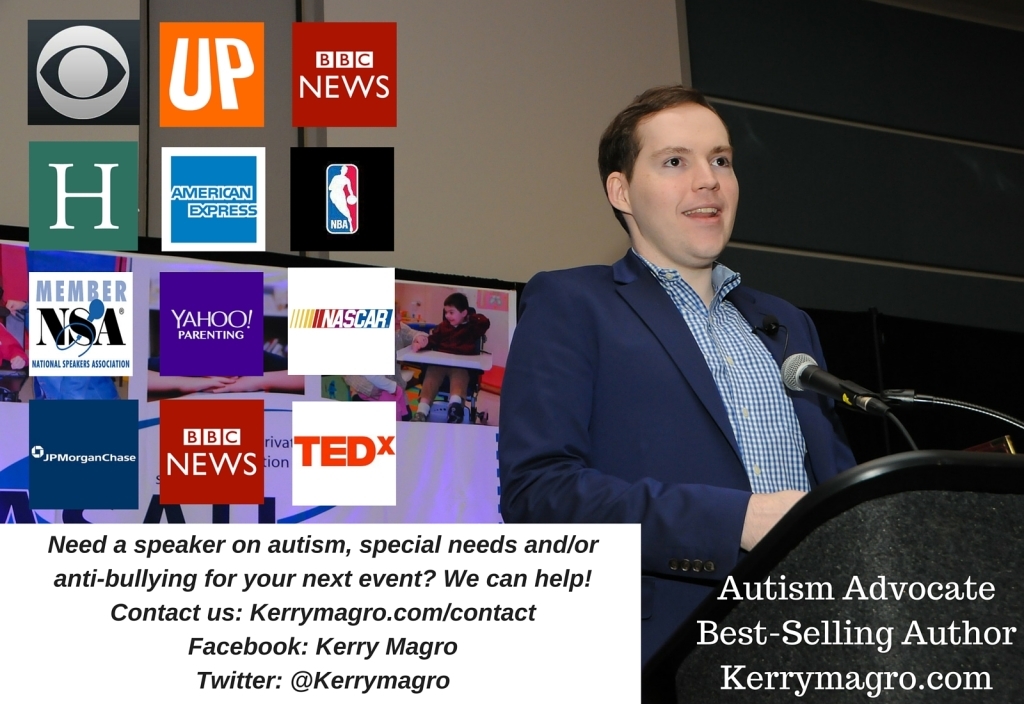
Kerry Magro, an international speaker and best-selling author started the nonprofit KFM Making a Difference in 2011 to help students with autism receive scholarship aid to pursue a post-secondary education. Help us continue to help students with autism go to college by making a tax-deductible donation to our nonprofit here. Also, consider having Kerry, one of the only professionally accredited speakers on the spectrum in the country, speak at your next event by contacting him here.

